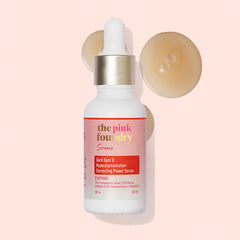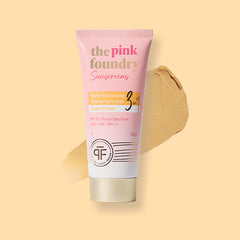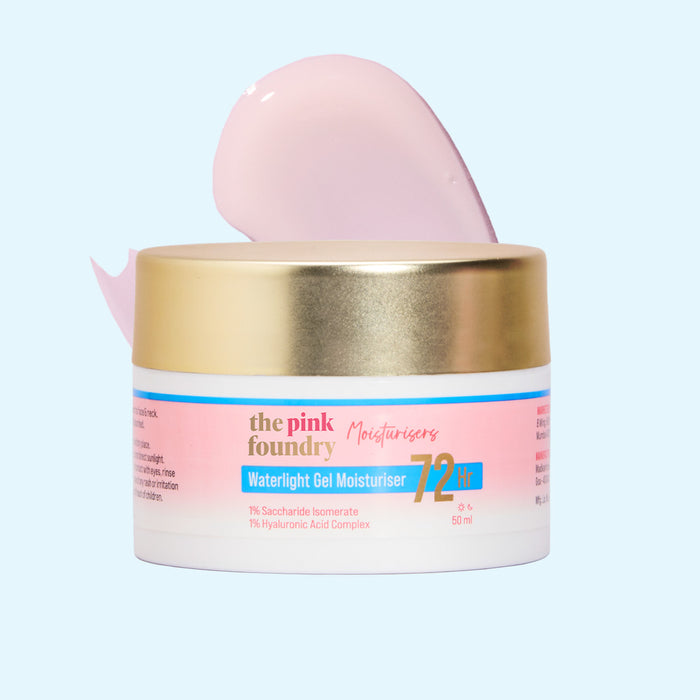Finding the Perfect Face Moisturizer for Your Sensitive Skin? Look No Further!
Due to its tendency to respond to diverse skincare products and natural variables more readily, sensitive skin can be excessively complicated. If you have delicate skin, you are accustomed to finding the ideal products that won't inflame it, make it red, or spark breakouts.
Selecting the ideal facial product is crucial to your impressionable skin care process. A quality moisturizer not only keeps your skin moisturized, but also guards against external irritants.
Types of Moisturizers for Sensitive Skin
It's substantial to realize that not all moisturizing solutions for delicate skin are uniform. Conventional types of sensitive face moisturizers involve:
1. Fragrance-Free Moisturizers
For delicate skin, fragrances may be a substantial burden and cause redness. To reduce the likelihood of negative reactions, seek products with markings such as "scent-free."
2. Hypoallergenic Moisturizers
They have a distinctive formation that makes potential negative reactions less likely. They have been engineered to be more sensitive to skin.
3. Oil-Free Moisturizers
Oil-free face moisturizers for sensitive skin are a great choice for sensitive skin prone to breakouts. Without clogging pores or sparking acne breakouts, they supply the necessary moisture.
4. Natural and Organic Moisturizers
Some sensitive skin types respond well to elements that are natural and organic. Choose items with a few gentle plant extracts and a few chemical ingredients.
Benefits of Applying a Moisturizer to Sensitive Skin
Using a suitable face moisturizer is crucial for sensitive skin due to the following benefits:
1. Hydration
Sensitive skin frequently has trouble holding onto moisture, which causes dryness and discomfort. By securing hydration, a moisturizer for dry sensitive skin keeps your skin supple and healthy.
Also Read: What Is Skin Hydration & How to Hydrate Skin
2. Soothing Irritation
A well-formulated moisturizer can help calm and soothe the skin, minimizing inflammation and discomfort if your skin is prone to redness and irritation.
3. Strengthening the Skin Barrier
Sensitive skin frequently has a weakened skin barrier. A quality moisturizer strengthens this barrier, shielding your skin from allergens and irritants outside.
4. Preparing for Makeup
It may be challenging to apply cosmetics on dry and delicate skin. By moisturizing, you can generate an unwrinkled exterior on which to apply makeup and prevent it from settling into fine wrinkles and intensifying existent skin conditions.
The Pink Foundry's Acne Care & Healing Moisturiser is a lightweight, coagulate-based moisturizer that intensely hydrates your skin cells and upholds the integrity of the skin barrier. Its meticulous formulation gives your skin a leveled, youthful appearance and aids in averting acne outbreaks.
Advice on How to Pick the Best Moisturizer for Your Skin Type
While selecting a face moisturizer for dry and sensitive skin may be troublesome, the recommendations that follow can support you in making a well-informed choice:
1. Read the label carefully
Always examine the product label for important specifics. Avoid moisturizers that contain hard elements like alcohol, sulfates, parabens, and others that could cause sensitivity.
2. Patch Test
Before applying a new cream to your whole face, do a patch test on a minuscule region of skin, such as behind your ear or wrist. This aids you in figuring out whether the product creates any adverse effects.
3. Seek Recommendation
Consult a dermatologist or other skin care professional who can suggest suitable products based on your skin's unique prerequisites.
4. Look for Particular Claims
Look for moisturizers that are "dermatologist-certified," "non-comedogenic," and "hypoallergenic," as they are more inclined to suit hypersensitive skin.
5. Choose simple formulations
Less can sometimes be more. Choose moisturizers with fewer components to lessen the chance of irritation.
Ingredients to Avoid When Choosing a Face Moisturizer for Sensitive Skin
When choosing a moisturizer for sensitive skin, avoiding substances that could aggravate sensitivity or trigger allergic responses is essential. Avoid the following:
Perfumes and fragrances
One of the most frequent irritants for sensitive skin is artificial fragrance. They could cause rashes, itching, and redness.
Alcohol
Products with alcohol in them can be harsh and drying, irritating the skin and upsetting its natural balance.
Sulfates
Sulfates, which act as foaming ingredients in many cleansers, might be overly abrasive for skin that is already sensitive, causing dryness and irritation.
Parabens
Many skincare products contain preservative parabens. Some people could react negatively to them, causing skin discomfort.
Also Read: Unravelling the Mystery: Understanding the Meaning of Paraben
Essential oils
Despite being natural, some essential oils can irritate the skin. It's advisable to stay away from moisturizers with many essential oils in them.
Conclusion
Finding the ideal facial moisturizer for delicate skin is important for maintaining a clear texture. Pick a lotion that includes no conceivably allergenic additives, hard chemicals, or scents. Consider your skin's particular prerequisites and experiment with varied products to find the one that works right for you.
Regularly test new products on a limited skin region first; if ambiguous, take recommendations from a skincare expert. You can safeguard your sensitive skin, keep it hydrated, and achieve an easy, bright appearance with a suitable moisturizer. So, savor the search to uncover the perfect moisturizer—your skin will surely acknowledge it!
FAQs:
1. What is sensitive skin?
Sensitive skin is easily triggered and prone to redness or reactions to skincare products.
2. How should I pick a moisturizer for my sensitive skin?
Look for formulas that are mild on sensitive skin and fragrance-free.
3. Can natural moisturizers benefit sensitive skin?
Yes, natural and organic ingredients can soothe sensitive skin without harsh chemicals.
4. Should I patch-test a new moisturizer?
Always patch-test on a small area to check for any adverse reactions.
5. Which ingredients to avoid for sensitive skin?
Avoid fragrances, alcohol, sulfates, parabens, and high concentrations of essential oils.










